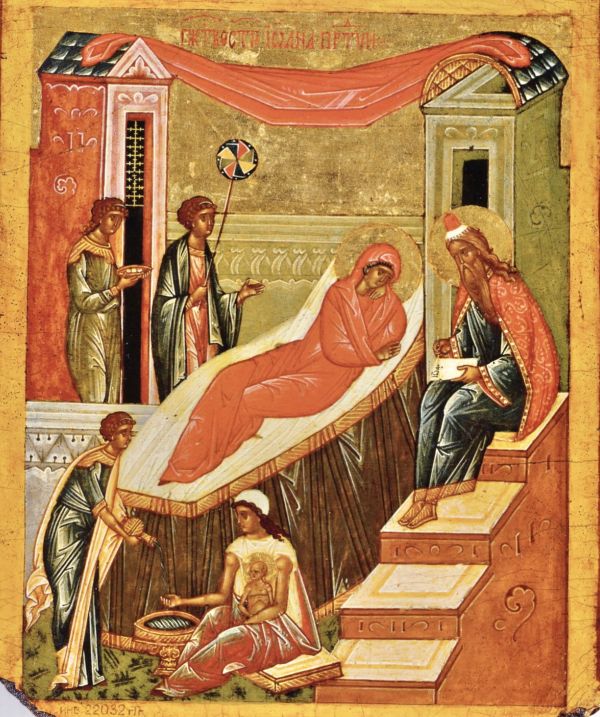The Liturgy relating to the Birth of the Baptist examines a Lucan passage where the people's question, faced with this event, is:
«What then will become of this child?» (Lk 1:66).
Like the Baptist, Francis was also called John at the baptismal font.
We find clues of recall in his life so particularly prophetic and, between the folds of his meagre existence, we discover admirable vocational assonances with the Friend of the Bridegroom.
The Sources help us in this regard.
In them we read:
"The servant and friend of the Most High, Francis, was given this name by divine Providence, so that by his originality and novelty the fame of his mission might spread more easily throughout the world.
His mother had called him John, when he was reborn of water and the Holy Spirit, and from a son of wrath had become a son of grace*.
A mirror of righteousness, that woman presented in her conduct, as it were, a visible sign of his virtue.
In fact, she was made to share, as a privilege, a certain resemblance to the ancient Saint Elizabeth, both in terms of the name she bestowed on her son, and also in terms of her prophetic spirit.
When neighbours expressed their admiration for Francis' generosity of spirit and moral integrity, she would repeat, almost divinely inspired:
"What do you think he will become, this son of mine? Know that by his merits he will become a son of God.
[...] Therefore, the name of John corresponds to the mission he then carried out, that of Francis to his fame, which soon spread everywhere after his full conversion to God.
Above the feast of any other saint, he held that of John the Baptist to be most solemn, whose distinguished name had imprinted in his soul a sign of arcane power.
Among those born of women there arose none greater than this, and none more perfect than this among the founders of religious orders" (FF 583).
Francis put all his enthusiasm into understanding and realising the promptings of Grace: to announce the perfection of the Gospel, preaching penance to all, with simplicity.
And since for the Poverello the voice of the smallest, in the fraternity, had the same weight as the voice of the great, indeed it was privileged, in the Spirit, for that priority given to the smallest by the Gospel, the Lord took him at his word for that he made himself the least in everything and among everyone.
"Often the Lord manifests what is best to the least" (Reg. c. IV. 18).
In him was realised the admirable wisdom of the Gospel, namely that in heaven, despite the greatness of the Baptist, the smallest is greater than he!
* Francis was baptised in the church of Santa Maria del Vescovado. The baptistery was later moved to the cathedral of San Rufino, where it still stands today.
Nativity of St John the Baptist (Lk 1:57-66.80)












